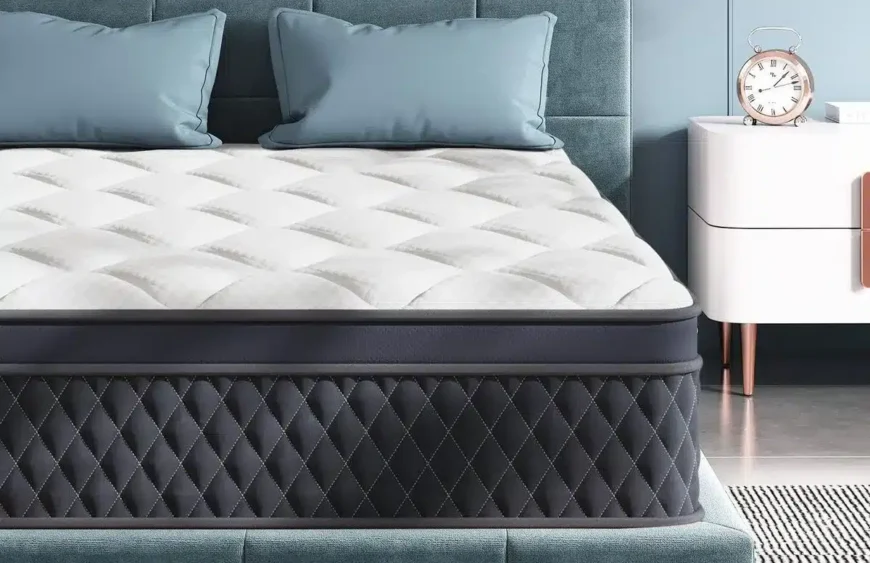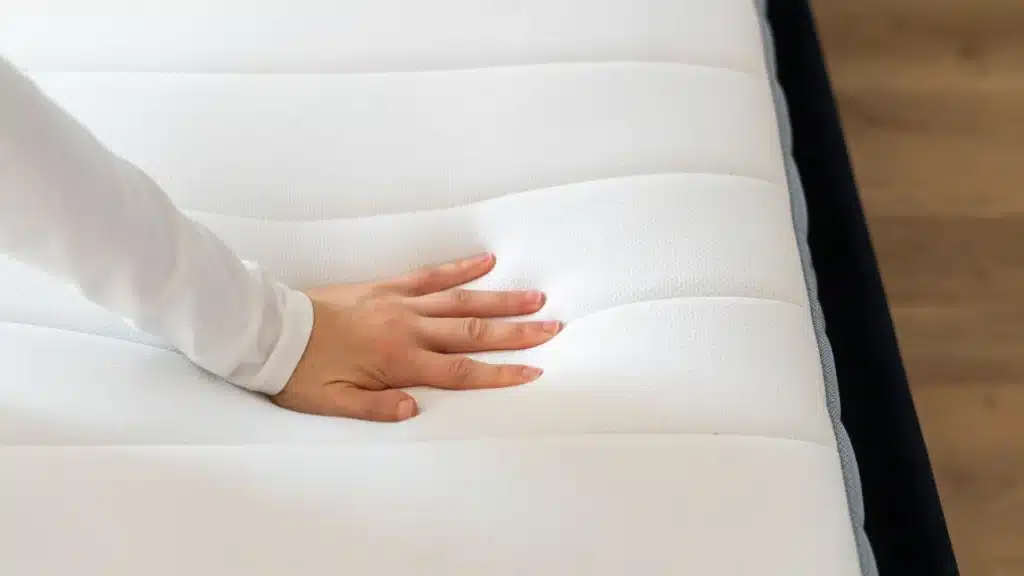A good night’s rest is the cornerstone of your well-being and work capacity. At the moment of its initial purchase, you might have been impressed with the memory foam mattress‘ capacity for adjusting to your body, pressure point reduction, and maintaining correct spinal alignment. But as time passes, even the quality memory foam mattress starts losing some of the original comfort and usability. If you wake up in the morning feeling fatigued, aching, or fidgety, it may be time to consider whether your mattress is doing its job anymore. Knowing, how often should you change your memory foam mattress is crucial, as sleeping on an outdated or deteriorated bed can impact not just the quality of your sleep but also your overall body and mind health.
In this article, we will take you through eight significant indications that it’s time to replace your memory foam mattress. Being aware of these signs will enable you to make a smart choice before your uncomfortable nights lead to chronic health problems.
1. Your Mattress No Longer Feels Comfortable
The foremost reason you bought a memory foam mattress was probably because of its comfort and pressure-relieving nature. Memory foam is meant to mold into your individual shape, providing you with that “hugged” feeling and maintaining the alignment of your spine. But if you have realized that sleeping on your bed no longer provides support or feels comfortable, it is a very clear sign that the foam has begun to lose its elasticity. As time passes, memory foam will soften and sag on its own, and after that, your body does not get the same support. If your mattress is lumpy, hard, or just not as comfortable as it once was, it’s time for an upgrade.
2. You Wake Up with Aches and Pains
One of the largest advantages of a memory foam mattress is its capacity to minimize pressure points that lead to back and joint pain. If you wake up in the morning with aching shoulders, tight hips, or lower back pain, it can indicate that your mattress has broken down structurally. As foam degrades, it will no longer cradle your body effectively, resulting in your spine misaligned throughout the night. This can lead to chronic pain, poor posture, and restless sleep. If you notice recurring discomfort that wasn’t there before, your mattress may be doing more harm than good.
3. Visible Sagging and Indentations
Memory foam mattresses are known for their durability, but they are not immune to sagging. After years of normal use, body impressions can develop in the foam if you sleep in the same position or spot on the bed all the time. Small impressions are normal, but deep sagging areas that do not bounce back are an unmistakable red flag. Sagging spots decrease overall support and could even push you into sleeping in uncomfortable positions. If your mattress has visible dips that prevent you from keeping a neutral sleeping position, it’s time for a new one.
4. Increased Allergies or Respiratory Issues
Another less tangible but still significant indication that it’s time for a new memory foam mattress is an increase in allergies or breathing difficulties. Mattresses trap dust mites, dead skin cells, and allergens over time, even when you clean your linens regularly. Though naturally resistant to certain allergens, memory foam is not entirely so. If you find your allergies to spike more frequently during the nighttime hours or you wake with a stuffy nose, your mattress may be to blame. A new mattress with improved hypoallergenic qualities can help restore clean, fresh sleep.
5. You Toss and Turn Throughout the Night
A quality mattress should enable you to sink into a deep, sound sleep with little motion. If you find yourself turning and rolling over more frequently, twisting and contorting to get comfortable, or waking up several times during the night, your mattress might not be offering the correct support anymore. Restlessness at night is usually brought about by pressure points and discomfort that compel your body to change position. Since memory foam is designed to reduce this issue, increased restlessness is a strong indication that your mattress is past its prime.
6. You’ve Had Your Mattress for More Than 8–10 Years
Even the highest-quality memory foam mattresses have a lifespan. On average, most memory foam beds last about eight to ten years, depending on usage and care. If your mattress has crossed or is crossing this period, it is most likely in need of a replacement. Some individuals might attempt to extend the life of their mattress into double digits, but the reality is that the material deteriorates over time. Spending in a new memory foam mattress after eight or ten years guarantees that you get the best comfort, hygiene, and support.
7. Your Sleep Quality Has Declined
Sleep quality is not only about hours in bed. If you’re waking up feeling drowsy, refreshed, or fuzzy-brained, your mattress might be the problem. Poor sleep impacts your mood, concentration, productivity, and even immune function. A mattress that no longer supports deep, restorative sleep can slowly drain your energy reserves. Many people overlook their mattress as the source of declining sleep quality, but if you’ve eliminated other lifestyle factors and still feel unrested, it may be time to upgrade your bed.
8. Your Lifestyle or Body Has Changed
Over the years, your body and lifestyle needs evolve. Perhaps you’ve gained or lost weight, developed back issues, or changed your preferred sleeping position. Memory foam mattresses are made to contour your body, but when your existing mattress is no longer accommodating your evolving needs, a new one may be in order. Furthermore, if you now have a partner or pet sharing your bed, your mattress might not support you as it once did. A new memory foam mattress that is designed specifically to your current lifestyle can be all the difference in comfort at night.
Why Replacing Your Mattress Matters
Keeping a worn-out mattress seems like penny-pinching, but actually, the cost of lousy sleep can easily exceed the price of a new bed. Sleep affects all areas of your life, from your physical health to your mood. Going on sleeping on a worn-out mattress can result in chronic pain, compromised immunity, increased stress levels, and even long-term health issues. Alternatively, purchasing a new memory foam mattress can revolutionize the quality of your sleep, imparting you with renewed energy, improved concentration, and overall better health.
Final Thoughts
Your memory foam mattress is central to your capacity to sleep well and wake refreshed. Although it can be hard to give up a mattress you’ve used for years, knowing when to do so is important for your wellbeing and happiness. If you notice one or more of the signs mentioned—discomfort, pain, sagging, allergy attacks, restlessness, age, deteriorating sleeping quality, or lifestyle changes—it’s time to begin searching for a new one. A new memory foam mattress is not merely a transaction; it’s an investment in your health. By tuning in to your body and being aware of the messages your sleeping space is sending to you, you can make sure that each night of sleep is adding something beneficial to your life.
Don’t wait until poor sleep takes a toll on your health—explore our guide to spot the signs early of how often should you change your memory foam mattress and find your perfect new mattress today!












